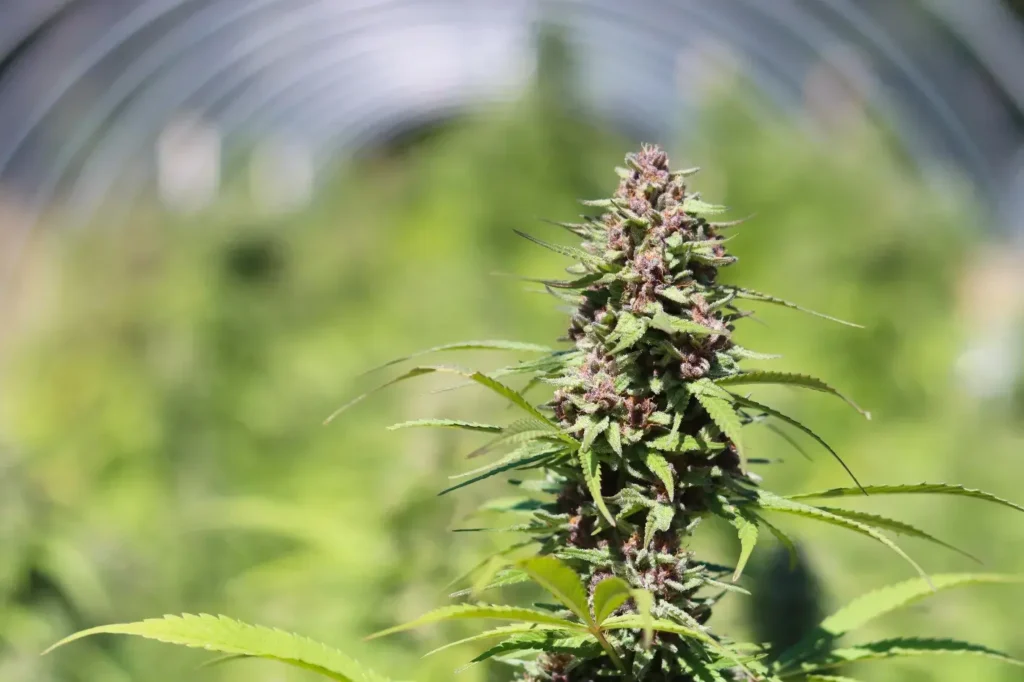Why Does Cannabis Increase Appetite?

Have you ever wondered why smoking pot makes you feel hungry? It’s a common experience for cannabis users. One minute, you’re enjoying a joint; the next, you’re raiding the fridge. But what’s behind this phenomenon?
There’s a fascinating explanation for the weed-appetite interaction. Cannabis uniquely interacts with our bodies. It affects our endocannabinoid system—certain receptors throughout our bodies. This interaction leads to an increase in appetite.
In this article, we’ll dive into the details. We’ll learn how cannabis affects hunger hormones and brain chemistry. Let’s look at some potential medical applications.
So sit back, grab a snack, and let’s solve this mystery. By the end, you’ll have a new appreciation for the complex relationship between cannabis and appetite.
Understanding the Munchies
Do you know what the munchies are? It’s the sudden feeling of hunger after consuming cannabis. Now think about it: have you ever experienced munchies after smoking pot? Weed munchies are a classic stoner stereotype for a reason. But why does it happen? What’s going on in our bodies?
It all comes down to how cannabis interacts with our brains. Marijuana contains compounds called cannabinoids, such as THC. These compounds bind to receptors in the endocannabinoid system, found in our brains and throughout our bodies.This system plays a role in regulating appetite and metabolism. When THC binds to these receptors, it can stimulate feelings of hunger.
In addition, cannabis can enhance our sense of smell and taste. Food becomes more appealing, which encourages us to eat more. This is part of the reason why weed makes you hungry.
At the heart of why smoking weed makes you hungry is the endocannabinoid system. This network of receptors and chemicals helps to regulate many bodily functions, including appetite.
When you consume cannabis, cannabinoids such as THC bind to these receptors. This interaction sets the endocannabinoid system into action. Suddenly, your brain tells you that you’re hungry.
But that’s not the entirety of why weed gives you the munchies. Cannabis also affects the hormones associated with hunger. It can increase levels of ghrelin, known as the “hunger hormone.” At the same time, it suppresses leptin, a hormone which tells you when you are full.
In addition, cannabis sharpens your senses. Smells become more enticing, tastes seem richer. Your brain’s reward system goes into overdrive. All of this leads to an irresistible urge to raid your pantry.
Can You Use Cannabis Without Experiencing the Munchies?
While the urge to eat is a common side effect of cannabis use, it’s not experienced by everyone. Some people may feel hungry after smoking, while others may not. It can depend on a variety of factors:
- The strain of cannabis can make a difference. Some strains, especially those with high THC content, are more likely to trigger an appetite. Others, especially high-CBD varieties, may have less of an effect.
- Individual physiology also plays a role. Each person’s endocannabinoid system is unique. Some people may be more sensitive to the appetite-stimulating effects of cannabis than others. So not everyone experiences weed munchies.
- Another factor is dosage. Consuming a large amount of THC is more likely to trigger your appetite. Microdosing or using low-THC products can minimize hunger.
Ultimately, to avoid the munchies, you need to experiment. Try different varieties, doses, and ways of consumption. Pay attention to how your body reacts. Through trial and error, you can find a way to enjoy cannabis without emptying your fridge.
Strategies to Control Cannabis-Induced Hunger
Do you enjoy cannabis but can’t handle the feeling of hunger? Don’t worry because you already know why weed gives you the munchies. There are several strategies to help you manage your hunger. Here are some tips:
- Choose the right variety. Different varieties of cannabis have different effects. Some stimulate your appetite more than others. Look for varieties that are high in CBD and low in THC. CBD can neutralize some of the hunger-inducing effects of THC.
- Choose healthier snacks. If you feel like snacking, be prepared with healthy snack options. Stock up on fruits, vegetables, nuts, and other nutrient-rich foods. Avoid keeping junk food and empty calories on hand.
- Stay hydrated. Sometimes, thirst can masquerade as hunger. Drink plenty of water before, during, and after consuming cannabis. It will help fill your stomach and reduce the urge to snack.
- Distract yourself. When you have a weed appetite, find an activity to distract yourself from eating. Take up a hobby, walk, or socialize with a friend. Keeping busy can help stop mindless binge eating.
- Practice mindful eating. If you do decide to eat, do so consciously. Pay attention to the taste, texture, and smell of the food. Eat slowly and monitor your hunger level. Stop eating when you feel satisfied.
- Keep time in mind. If possible, time your cannabis use to coincide with meals. If you know you’ll be prone to snacking, consume cannabis after a nutritious lunch. It will help reduce the likelihood of overeating.
Remember that everyone’s relationship with cannabis and appetite is different. You may have a question about why weed makes you hungry, and your friend may not. It may take some experimentation to find the best strategies for you. Be patient with yourself, and don’t hesitate to seek the advice of a medical professional if necessary.
Advantages of Cannabis-Induced Appetite Boost
Appetite may seem like a funny side effect of cannabis use. But, in some situations, it can provide significant benefits. Here are a few potential benefits to the question of why smoking weed makes you hungry:
- Help with weight gain. For people who have difficulty maintaining a healthy weight, cannabis can be a valuable tool. These may be cancer patients or those suffering from eating disorders. Increasing their appetite can help them consume more calories and nutrients.
- Relieving nausea. Some medical conditions and treatments, such as chemotherapy, can cause severe nausea and vomiting. It can make it difficult to eat. Cannabis has anti-nausea properties..
- Increased enjoyment of food. For some people, cannabis can enhance the taste and smell of food. Enhancing sensory experiences can lead to a deeper appreciation and enjoyment of food.
- Promotes relaxation while eating. Anxiety and stress can interfere with healthy eating. The relaxing effects of cannabis can help people feel calmer while eating. It will lead to better digestion of food.
- Supporting healthy digestion. Cannabis interacts with receptors in the digestive system. You know what the munchies are, and this sensation can help regulate gut motility and reduce inflammation. It potentially promotes healthy digestion.
As with any cannabis use, moderation and mindfulness are key. If you’re considering using cannabis to stimulate your appetite it’s best to consult with a medical professional first, particularly if you’re already undergoing some sort of medical treatment such as chemotherapy.
Conclusion
In conclusion, the link between cannabis and increased appetite is very interesting. By understanding the scientific basis of cannabis-induced hunger, we can capitalize on its potential benefits. It will allow us to develop strategies to address the problems. The boost to appetite for patients who are undergoing treatments like chemotherapy can be life-changing, but feeling caught in a vicious cycle of enjoying cannabis and then overeating can be detrimental to others. Like any other tool, cannabis requires responsible and informed use.
